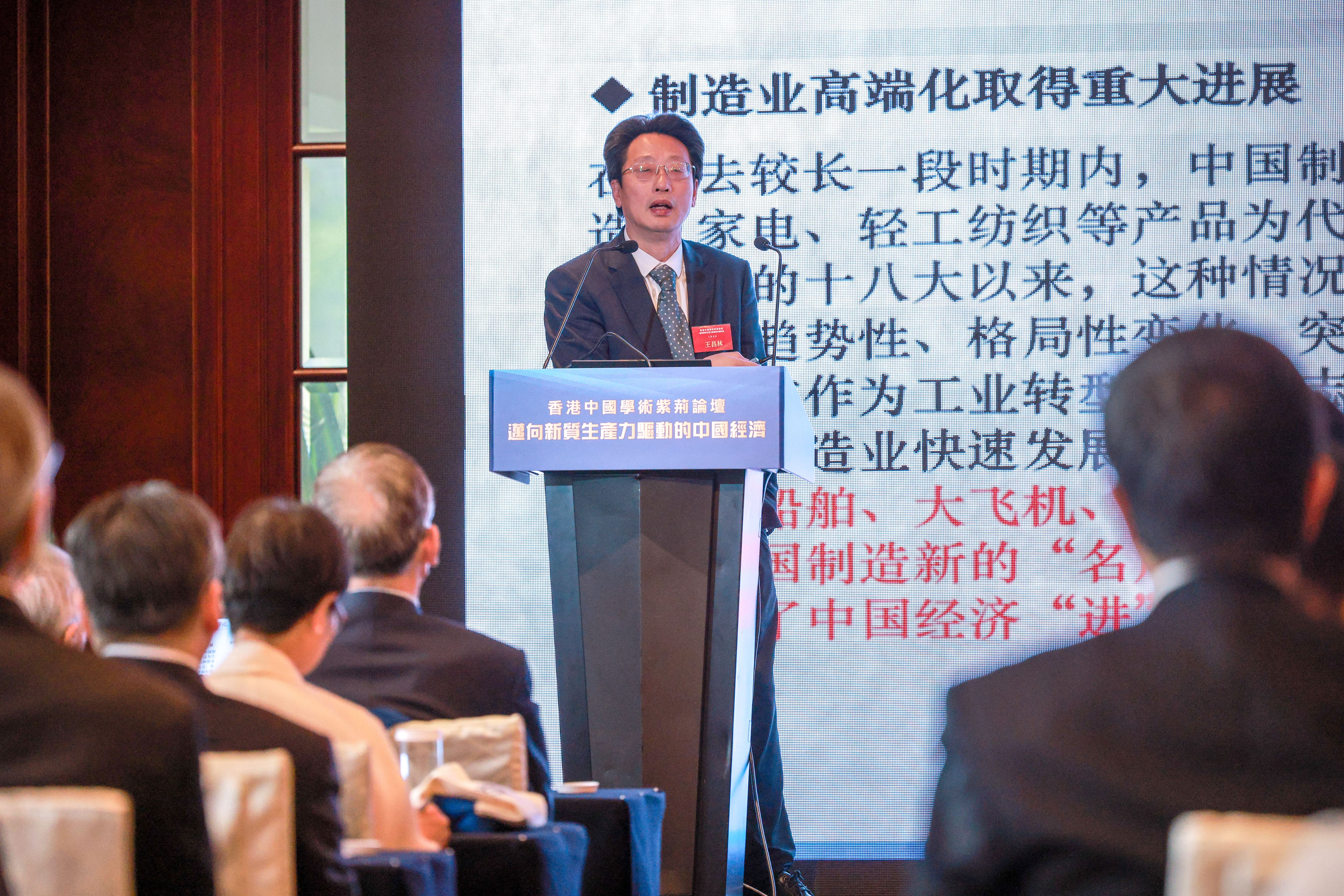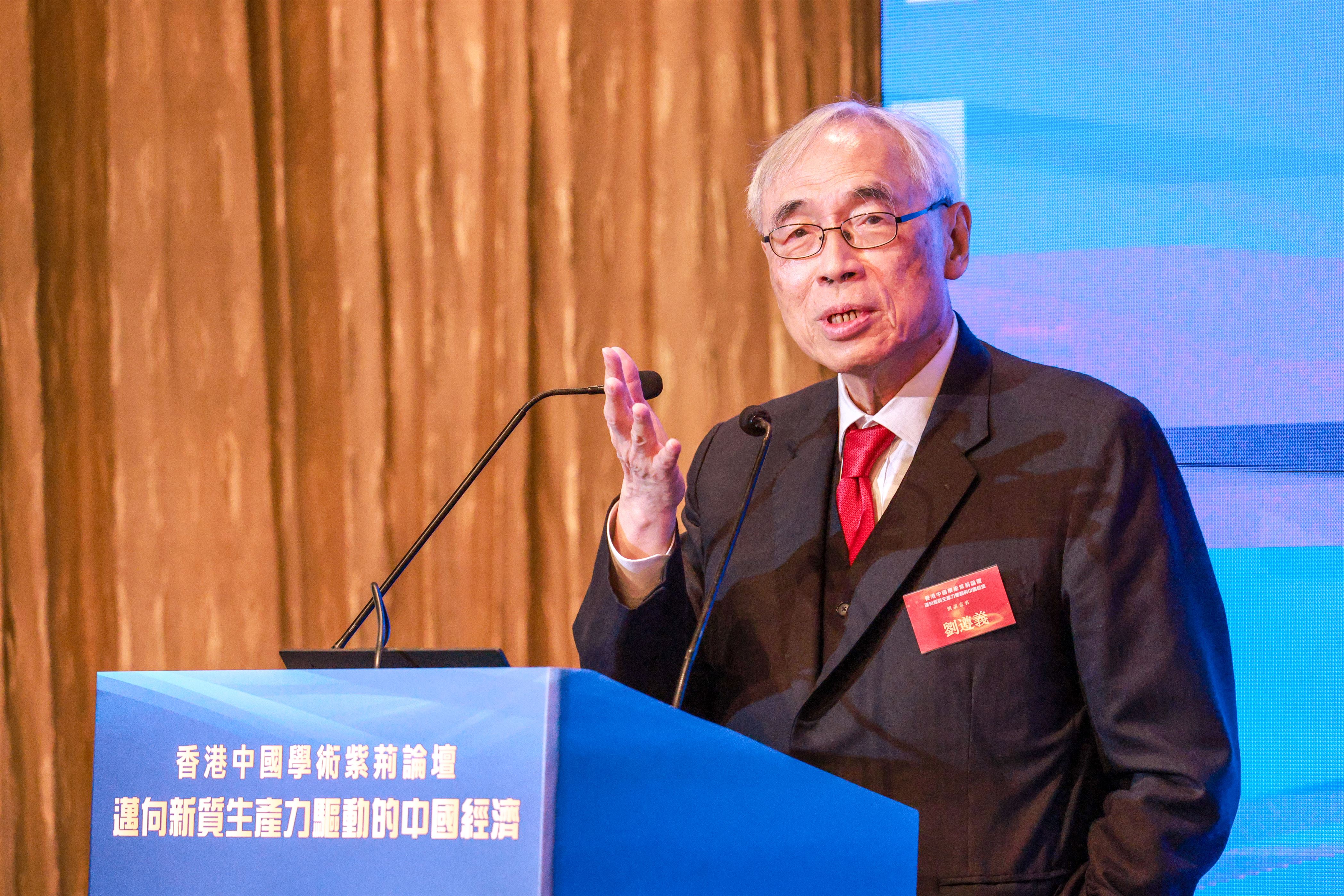
Hong Kong should speed up building itself into a powerhouse for higher education to nurture high-quality professionals for the nation’s new quality productive forces, experts from the Chinese mainland and Hong Kong said on Monday.
In light of the momentum brought by new quality productive forces, Hong Kong also ought to enhance financial collaboration with the mainland to fully leverage its edges in the national blueprint, they said at a forum themed on the driving effect of new quality productivity on the Chinese economy, which was held in Hong Kong on Monday.
ALSO READ: Hong Kong wins a record-breaking number of awards in Geneva
Addressing the event, Wang Changlin, vice-president of the Chinese Academy of Social Sciences, said the new quality productive forces — referring to productivities led by technological innovation that breaks away from the traditional development modes — are shots-in-the-arm to the nation’s economy.
The proportion of new energy vehicles in China will reach 45 percent of the total new vehicle market by 2027, and artificial intelligence will have in-depth application in every sector of life in the nation by 2030, Wang Changlin, vice-president of the Chinese Academy of Social Sciences added
Wang said the nation has made significant progress in high-end manufacturing, and the size of its digital economy is second only to that of the United States. The proportion of new energy vehicles in China will reach 45 percent of the total new vehicle market by 2027, and artificial intelligence will have in-depth application in every sector of life in the nation by 2030, he added.
READ MORE: HKBU embraces AI to promote HK's cultural innovation
“These achievements prove that new quality productive forces will have a broad development prospect,” Wang said.
Wang urged Hong Kong to invest more resources and build itself into a powerhouse for tertiary education, which can nurture more high-quality professional for the development of new quality productive forces.
Wang added developing new quality productive forces should be supported by financial services, an area Hong Kong can make a greater contribution. He said it is necessary to strengthen financial cooperation between Hong Kong and the mainland, and to enhance Hong Kong’s status as an international financial center.
Closer economic ties between Hong Kong and the mainland will further promote the development of the Guangdong-Hong Kong-Macao Greater Bay Area, Wang said.
Speaking at the same event, Wang Yiming, vice-chairman of China Center for International Economic Exchanges, said he believes Hong Kong can play a greater role in developing new quality productive forces.

Wang said the city has four universities ranked among the top 100 in the world and has obvious advantages in basic research. It can also play a unique role not only in training first-class scientific and technological professionals, but also in promoting international scientific and technological exchanges, he continued.
READ MORE: CUHK opens new fitness center with smart devices to help athletes
Additionally, Hong Kong’s highly open financial environment, well-developed capital market system, and perfect financial infrastructure can all play pivotal roles in financing innovative science and technology enterprises in the mainland, he added.
Lawrence Lau Juen-yee, former president of the Chinese University of Hong Kong, said there are two major ways to promote the long-term high-quality development of China. One is to increase investment in human resources and research and development, the other is to increase investment in basic research such as education and medicine.
The forum was organized by the National Academy of Economic Strategy under CASS, the Chinese Institute of Hong Kong, and the Bauhinia Magazine.


